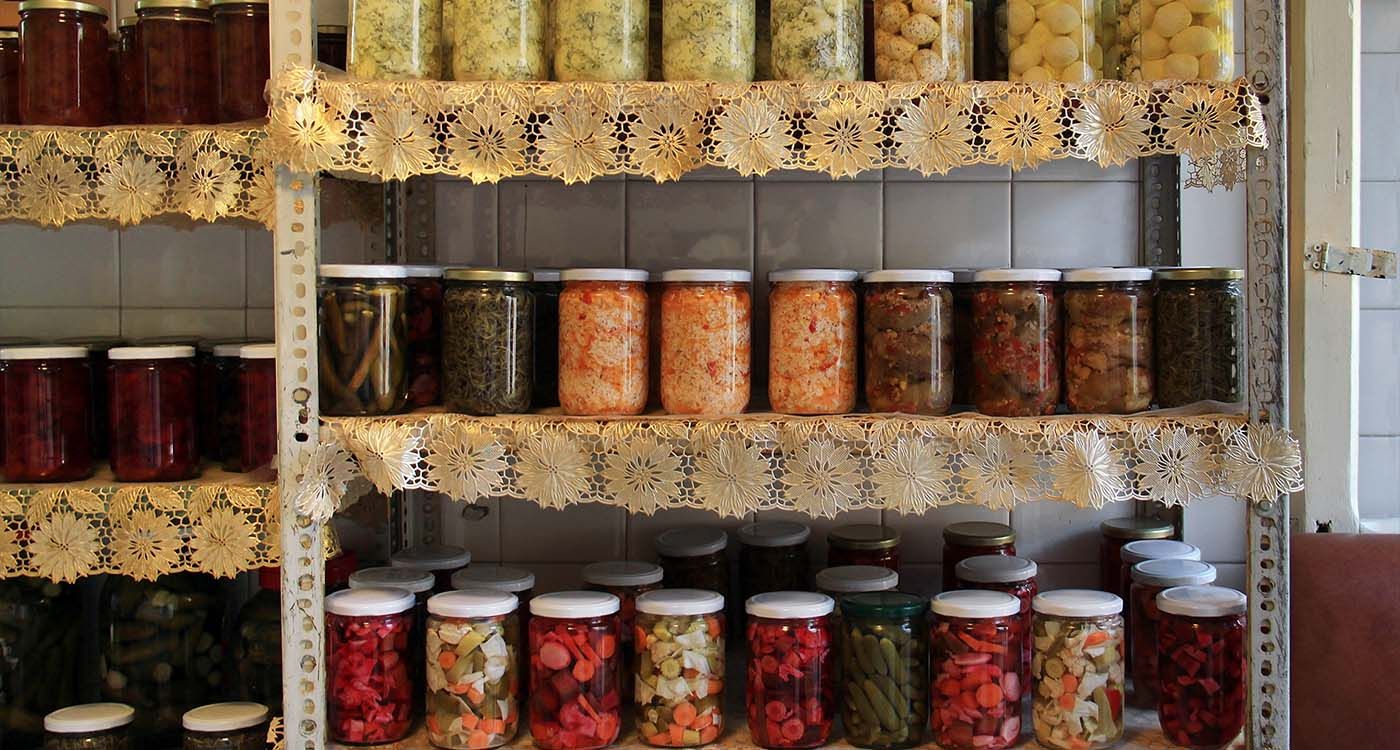
In South Lebanon, life continues under the shadow of targeted Israeli strikes, and the future remains uncertain. Yet in Marjayoun and Hasbaya, daily life carries on. Amid the threat of renewed conflict and the slow, difficult return to their villages, residents hold fast to their traditions, especially the ancestral practice of Mouneh, the careful preparation of winter food reserves.
Each jar of jam and every roasted grain of wheat reflects a deep connection to the land and to identity. As Soha, a resident of Khiam, reflects: “This is our land, our only refuge.” Mouneh serves as both a survival economy, with any surplus sold, and a living memory, linking generations.
The fertile lands of Marjayoun and Hasbaya, blessed with olive groves, orchards, and vegetable gardens, set the stage for this enduring tradition. Every September, families and neighbors gather to transform the harvest into provisions for the winter months. In Arabic, the word ma‘ouna, or Mouneh in Lebanese dialect, derives from the verb mawwana, meaning “to supply.” Preserving, drying, fermenting, and pickling are time-honored techniques carefully passed down from one generation to the next.
Far from fading in the face of globalization, Mouneh continues to sustain rural life, reinforce family bonds, and preserve a sense of identity that is both tangible and deeply felt.
Women, Guardians of Culinary Memory
In Marjayoun and Hasbaya, residents honor their culinary traditions by turning the preparation of Mouneh into an act of resilience. “Making Mouneh is at the heart of our culture. It keeps us connected to our roots, even in the darkest times,” says Rima, a resident of Blat, a village in the Marjayoun district, as she spreads sun-dried figs.
In a region where war has destroyed traditional sources of income, Mouneh has become a vital means of economic empowerment for women. “Every jar of jam sold is a small victory. It allows me to contribute to the family’s expenses,” explains Rima.
“It is also our way of showing that we are still here, that we will not be defeated,” adds Em Youssef, whose family has cultivated fruits and vegetables for decades. “Preparing and selling Mouneh lets us assert our presence in the public sphere, participate in the local economy, and preserve a cultural identity.”
Against All Odds
In southern Lebanon, preserving food through pickling, cooking, or drying is primarily a female-driven activity carried out within the family. Preparing Mouneh was traditionally an occasion for women to gather in one household to make the family’s winter reserves.
“I discovered the extraordinary richness of our land. It wasn’t just the flavors that captivated me, but also meeting men and women who work with passion and love. Their enthusiasm and professionalism amazed me. The quality of their products is unlike anything found in commercial stores,” says a returnee who came back to his native village of Marjayoun after many years in Canada.
The variety of products differs from region to region. Marjayoun is known for its Freekeh, a roasted young green wheat with a distinctive smoky flavor. It can be served alone, in salads, or as a substitute for pasta or rice.
Kammouneh is a fragrant mix of fine brown bulgur, or crushed wheat, blended with tomato paste, peppers, and a mix of natural oriental spices including cumin, rose, chili, clove, marjoram, mint, allspice, black pepper, and salt.
Kishk is a mixture of labneh and bulgur, fermented for nine days, sun-dried, and then ground into powder or milled. The type of labneh used influences the flavor of the final product. In Marjayoun, goat’s milk is preferred. The taste and color of Kishk also vary depending on the type of bulgur used. Brown bulgur is commonly used in Marjayoun, while white bulgur is preferred in other regions.
Makdous is part of Lebanon’s rich culinary heritage. Small eggplants are stuffed, blanched, and filled with a delicate mix of peppers, crushed walnuts, and garlic, creating a surprising contrast of textures.
Sumac, a spice made from wild berries, is also prepared for winter, alongside jars of sun-dried tomatoes, labneh balls in olive oil, air-dried zaatar, cheese, grape molasses, carob, and bottles of pomegranate and rose syrups.
This wide array of local products invites a journey through Lebanon’s warm, indulgent, and sun-soaked gastronomy. “I cannot remember a single year of my childhood when we did not prepare Mouneh. Without it, survival would have been impossible,” recalls a village woman.
“We prepare it as we would store memories and emotions, with love, and by sharing them,” says Alia, a woman whose hands bear the marks of time. “All the ingredients are natural, beautiful to look at, and delicious to taste. These are the products of an often-overlooked Lebanon, flavors and customs preserved by a handful of people who cannot live any other way than rooted in tradition and the land, moving with the rhythm of nature and its moods,” she adds.
“It is also about preserving a heritage and passing it on to younger generations. It is almost a mission, so our children can continue to safeguard our legacy.”
Mouneh carries a profound sense of identity, embodying the history, customs, and values of a people deeply connected to their land for centuries. This cultural significance is reflected in architecture. Traditional Lebanese houses, some more than two hundred years old, all contain a room or cellar called Beit el Mouneh, a sort of pantry for storing food.
A Taste of the Land and Survival
Before the war, surplus products sold easily in the souks of El Khan, Khiam, and Bint Jbeil, in restaurants, and even to tourists. Today, the situation is alarming. Fear of conflict has caused sales to plummet, leaving small producers and local merchants who rely on these sales for their livelihood in a precarious position.
“Before, we sold our products not only to locals but also to tourists, at exhibitions, and in restaurants. Now, most people hesitate to visit the region,” says Paul, a Mouneh producer based in Marjayoun. “Our sales have dropped by nearly 50%.”
Moussa, another producer aware of the challenging circumstances, is diversifying his business by offering online sales and home delivery, aiming to reach a wider audience, particularly the Lebanese diaspora.
Amid these challenges, community solidarity has strengthened. Residents of Marjayoun actively support and promote Mouneh products, encouraging one another to buy locally. “It is a way of standing together,” says Siham, a displaced resident of Kfar Kila now living in Nabatiyeh.
Festivals celebrating Mouneh, organized this summer across villages in South Lebanon, have become a lifeline for producers, sustaining both tradition and livelihood while keeping the region’s culinary heritage alive.



Comments